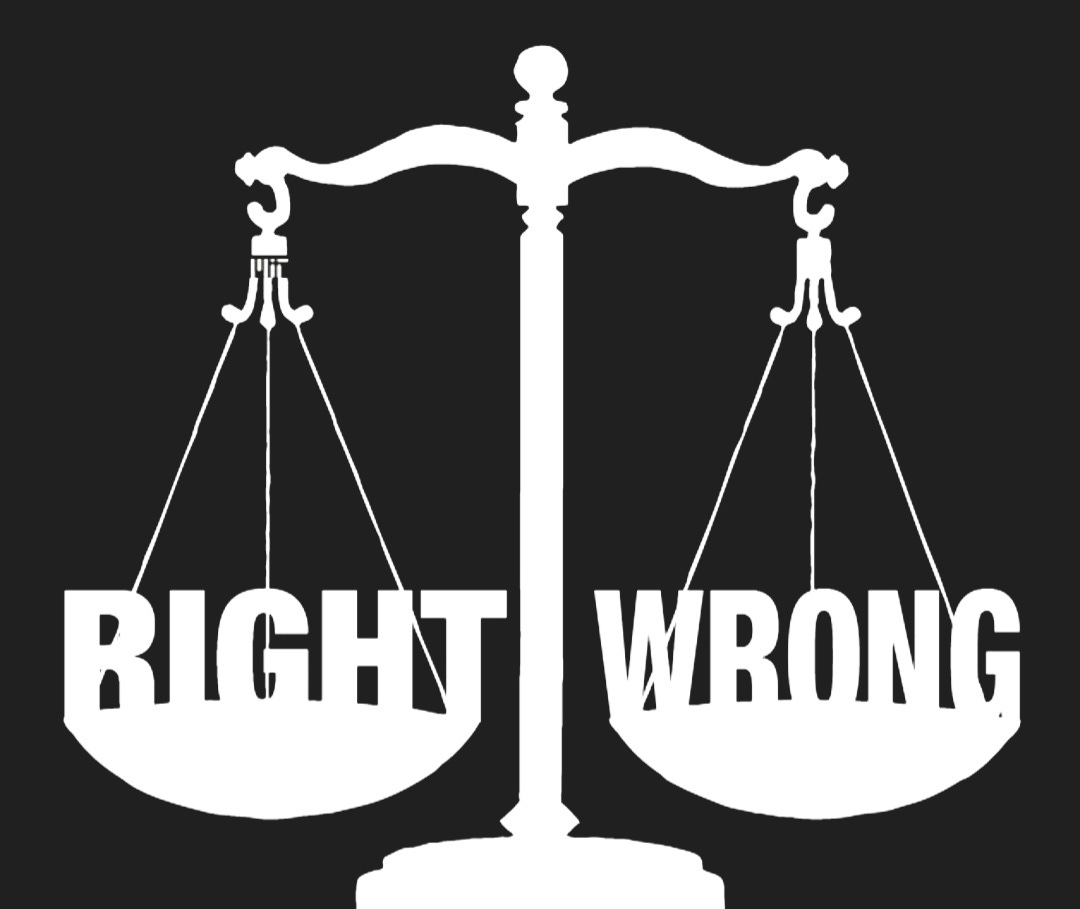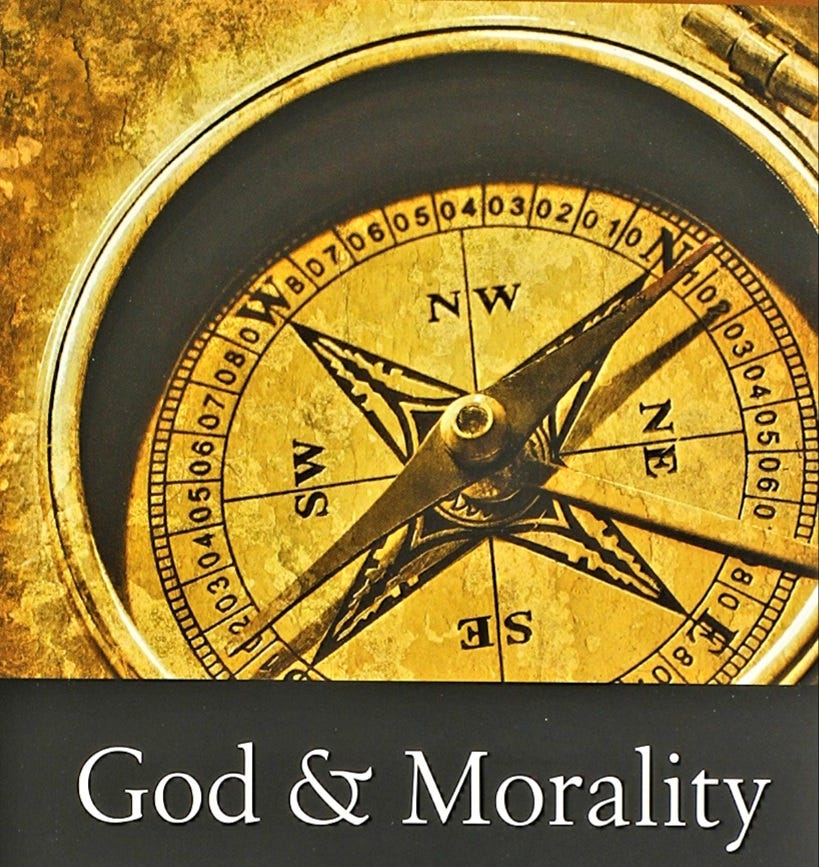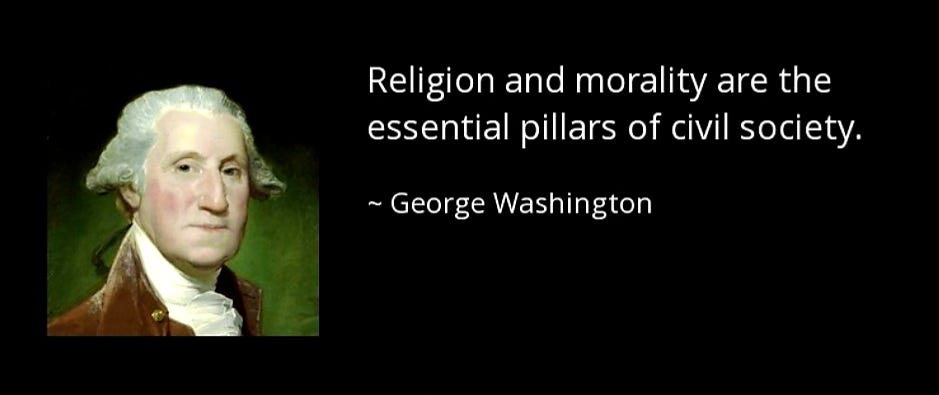When there are no rules, what are the rules? In a world that has gone increasingly secular and has, as a result, become less certain about any sense of objective morality, what can we point to as a source of confidence and at least some measure of moral conviction? Indeed, not only has morality been ignored and trivialized, but certain skeptics claim that any belief in objective morality is a fiction. Atheism and those who sympathize with it often attack the notion of moral virtue. If there is no God, some argue, how can we assert that right and wrong are valid categories, that objective truth even exists? Other skeptics, however, take the opposite view. Though denying theism, they maintain that we can still talk about right and wrong, about morality. Are either of these views feasible?
Many atheists (though not all) are quite militant in their views. They seem determined to shut down the belief in morality. “Science governs our thoughts today,” or so they assert. How, in light of this secularized view, do we respond?
Well, first off, it seems rather evident, I think, that most of us know that there is such a thing as objective truth. Even those who philosophically disapprove of the idea of absolutes can’t help but act like they indeed exist. Every time we enthusiastically support a cause, whenever we oppose some apparent wrong, we acknowledge that there are absolutes in the universe. To reject what is clearly evil and to celebrate what is plainly good is not a matter of opinion but of the instinctive realization that there is purpose in our lives. Though our thinking may sometimes be muddled and while we often have more questions than answers, we do desire clarity and answers. This, many argue, is an indication that something within us–though imperfect and struggling–longs for what is right. The Judeo-Christian perspective says that there is a correspondence between what we yearn for and what is. There is something “out there” that corresponds with what we sense within ourselves. Even the atheist claims that his desire to eliminate the “antiquated morality” associated with religious beliefs is, in effect, a noble effort. How, though, do we even define nobility in a godless world, and why would it matter either way? Atheism, you see, sneaks in a belief in absolutes, borrowing from the theist’s capital, as it were, in order to argue its points. This is why, as many have said, atheism is self-refuting. If it is true, nothing matters, including its own assertions. If it’s false, why then insist on such a path?
FUNDAMENTAL ISSUES
Without absolutes, how do we determine if there is such a thing as right and wrong, and how do we distinguish between opinions that come-and-go and that which is objectively true? One way to understand these matters is to take an obvious example.
Slavery, for instance, is an inherently inappropriate practice. To treat another human being as inferior, attacking a person based on superficial traits, is plainly wrong. In practice, almost everyone would agree that slavery is a moral transgression, and I obviously agree. But, why is it wrong? On what basis can we declare in some objective manner that slavery is immoral?
Some secularists argue that it’s wrong because it is illegal. But the opposite is true. Slavery was deemed illegal because our society first recognized its immorality. If legality (important as it can be) is the final arbiter, then many perverse activities in human history would have to be deemed “moral,” and of course no one wants to go down this path.
Others assert that slavery is wrong because the vast majority of people accept that it is wrong. Well, it is correct to say that in our day slavery is rejected by almost everyone in the West, which is a very good thing. What do you say, though, when a society declares slavery acceptable? For a good portion of human history, slavery was indeed defended. So, while we want everyone to oppose slavery, its wrongness is independent of what humans have to say about it. Opinion doesn’t create morality, though it hopefully reflects it.
Still others might claim that slavery is wrong because we intuitively know that it is. In a very real sense, I concur. The issue, though, is why we intuitively know. If it is merely some survival instinct, you could always ask why survival is morally superior to, say, not surviving. I agree that survival matters, but I’m not so sure that I can prove it is an absolutely superior ethic. If, on the other hand, this intuition arises from something else–Someone else–then there is indeed something to say here.
The bottom line is that it is very difficult to live life without some sort of belief (or subconscious acceptance of) objective morality. If someone steals your identity, if a drug dealer contributes to the ruin of your best friend’s life, if terrorists fly planes into a building and cut short the lives of thousands, if a pedophile rapes your cousin, if a child-predator abducts your child, the universal response is “that is wrong!” This wrongness is not an illusion. It is real and felt and nearly impossible to deny. Right and wrong, truth and error, good and evil–these are moral categories that require a cause. That cause cannot be located without a direct or subtle, an acknowledged or at least implied, belief in a morality-maker. Morality points us to God.
THE SOURCE?
Now, someone might argue that knowing there is objective truth is not the same as knowing exactly where it came from. Accepting that there are absolutes doesn't mean we necessarily know their origin. Likewise, recognizing there are “rules” doesn’t mean we can always agree on what they are. Fair enough.
Though a detailed answer would require an extended conversation, a brief response is in order.
Historically, a strong contender for an acceptable basis (for morality) flows from a Judeo-Christian worldview. Here is a view that has made its impact for centuries, positively guided many societies, under-girded the blessings we've experience in our country, motivated countless changes for good, and was in fact the impetus for the abolition of slavery that we mentioned earlier. While it is true that Christians haven’t always done what is right, Christianity (a biblical worldview)–whenever taken in a serious and not superficial manner–has generated many of the good things we observe around us. A work ethic, the sense of telling the truth, the need to sacrifice for what is good, the proper relationship between management and laborer, the sanctity of life, the essential requirement of standing for righteousness–these and many other ideals have been highlighted by those who followed ancient Scripture. No one denies that many fail to live up to these high standards (and this itself is what a Judeo-Christian worldview predicts), but where would we be if we didn't even acknowledge that such standards exist? (Look around, and you’ll see!) We often miss the target, but we can be thankful that such a target remains. More relevant still, though we often disregard what God says, there is reason to be grateful that he is there to forgive and restore and guide and provide purpose.
WHICH GOD?/WHAT DIRECTION?
There are theists–believers in God–that come at it from a different angle, of course. Some are “nominal theists,” by which I mean they accept God in a general sense but don’t major on the issue. Others from different religions accept the basic premises stated here.
This is not the place to debate all of these topics. It does, however, reinforce the notion that those from different backgrounds grant that morality is real and that it finds its proper source in a deity. Morality points to God even as God determines and shares with us the shape of that moral inclination.
It is, however, worth reiterating the impressive resume of the Judeo-Christian ethic in general and Christianity in particular. Here is a worldview that is determined by a God whose characteristics and actions match the world we observe. Furthermore, he is a God who has acted (and acts) in history, most profoundly in the person of his unique Son. His revelation has transformed nations, profoundly altered lives, and has given hope to millions down through the ages.
Whatever the particulars (and these are very much worth discussing), it bears repeating that morality is a real thing. It originates with God and is detected by his creatures. You could say that truth is “in our bones” since we are made in God’s image and his law is written on our hearts. By way of contrast, atheism–whether actively pushed or passively assumed–is a self-defeating perspective that–if taken seriously–leads to chaos and confusion.
The details of how to live can be complicated and elusive, no doubt. There are legitimate debates about a variety of issues. We are imperfect and fallen creatures, living in an imperfect and fallen world. Still, this does not eliminate our hope that there is light to be found. There is indeed One who is “the light of the world.” While we can and should seek to determine how best to appropriate and live out the right kind of life, a good starting place might be to simply heed the basic instruction of the same one who says, “follow me.”
THOUGHTS
We all know there is such a thing as morality. Whatever our words or claims, we act like there is truth in the universe. In fact, even when we don’t see a world that corresponds to what we think it should be, that very impulse is one driven by truth. Even the atheists say “things ought to be a certain way.” But what explains this sense of “ought to be” in our lives? The answer is that there is something within us that knows there are absolutes.
Atheists can be moral or immoral, as can theists. The issue is the justification of one’s view, not whether we live in a manner consistent with it. This is not about pitting atheists against theists or implying some sort of superiority. As much as we should strive to live honorable lives (a separate and essential issue), the superiority in these debates is not of theists, per se, but of theism. It’s important to be clear about this.
Atheism, in the final analysis, leads to relativism–the idea that morals are fluctuating and ever-changing. Though relativism might be initially appealing to some, history shows it leads to disorder and hopelessness. Again, and thankfully, not all atheists move in this direction. This, I would argue, is not because of the morality-creating influence of atheism (quite the opposite) but rather despite its morality-destroying tendency.
If there is no God, what basis do we have for morality? Some evolutionary mechanism? Why should that matter, and in what sense would this be a good thing? To get along in society? While that might be helpful and noble, it is just as easy to see how–in an atheist’s world– helpfulness, nobility, and getting along are merely arbitrary rules with no absolute foundation.
Is there ever a time or place for saying “such and such is correct” not only for me but for everyone else? Is lying intrinsically wrong? Should I not only avoid lying but also urge others to do the same? Is slavery immoral for certain societies but not for others? We need a moral barometer, an absolute, that applies to all people. Only a transcendent being can provide this.
A morality that is intended for everyone is best orchestrated by a creator. A person-centered view comes to us from a personal God. As John Frame has said:
Why then should we believe that morality depends on God? To say God exists is to say that the world is created and controlled by a person – one who thinks, speaks, acts rationally, loves and judges the world. To deny that God exists is to say that the world owes its ultimate origin and direction to impersonal objects or forces, such as matter, motion, time, and chance. But impersonal objects and forces cannot justify ethical obligations. A study of matter, motion, time, and chance will tell you what is up to a point, but it will not tell you what you ought to do. An impersonal universe imposes no absolute obligations (https://frame-poythress.org/do-we-need-god-to-be-moral/).
You do not need to believe in God to be moral, and believing in God does not make certain that you will be moral. But believing in God is consistent with absolute morality, while atheism cannot explain the existence of morality apart from God.
As stated, there are many discussions tied to the subject matter mentioned here–some are complex, some are relevant, some are a mere distraction. The ideas of truth, absolute truth, right and wrong, and morality are inextricably linked to human beings. Whatever the claims of skeptics, however much the human heart tends to resist, it is good that there is good in the world, that there is a good God who is the source of any legitimate morality we experience or encounter. As he himself declares, “I will put My law within them and on their heart I will write it” (Jeremiah 31:33).
____________________________
AFTERTHOUGHT: To clarify, a biblical worldview is not about earning God’s favor but receiving God’s favor by simple faith in his Son. It is not that morality is irrelevant but that we are incapable of achieving such perfection. In this sense, the initial pursuit of morality condemns us in that it reveals how far short of the divine mark we fall. This is why Jesus came to earth–to earn FOR US what we could not and to absorb the penalty of our wrongs. Still, morality in the broad sense (i.e. obeying God) is extremely relevant, for it demonstrates the authenticity of our faith. In essence, it is the proper response to God’s goodness. Again, we don’t seek to live the right way in order to achieve acceptance with our Maker; rather, he has achieved that acceptance on our behalf, and it is ours to simply take him, trust in him, follow him. It is not “morality” that makes us right with God. We are right with God through faith in his Son, and “morality” follows as the expression of our appreciation for his mercy and grace.




